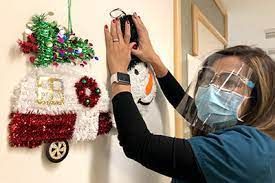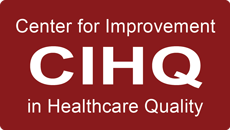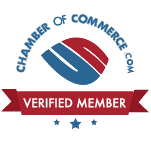Food and Nutritional Services
How does your Healthcare Facility Measure Up?
june 2023
By Jody Randall MSN, RN, CIC, HACP-CMS, HACP-PE
CEO and Founder
There is no doubt that some of the most dedicated and hardworking personnel in the healthcare industry work in dietary services. This is often an area that is overlooked in the healthcare industry. Regardless of the type of nourishments your organization provides, if your organization participates in Medicare or Medicaid programs, they are expected to abide by § 482.28 Condition of participation: Food and dietetic services. When was the last time your organization reviewed the standard to ensure that all requirements are being met?
If a facility does not employee a full-time registered dietician, certain criteria must still be met when utilizing outside food management resources. It is possible to meet this condition by employing part-time or consultation services, however, there must be protocols in place in which qualified professionals are available for patient care nutritional needs on a constant basis.
Under CMS Conditions of Participation, a hospital must demonstrate one of the following:
- Employ a qualified, full-time, director of food and nutritional services who oversees and is responsible for day-to-day management of all dietary services.
- Must demonstrate that a qualified dietician is available for all organizational dietary needs on a full-time, part-time or consultation basis.
- Be able to demonstrate evidence of personnel both administrative and technical who are competent to provide food and nutritional support services.
Under CMS Conditions of Participation, organizations must demonstrate that they meet the nutritional and therapeutic dietary needs of patients. The minimum criteria for meeting this condition are as follows:
- There must be evidence that dietary requirements are customized to individual patient needs based upon recognized dietary practices.
- Individuals ordering diets for patients must be qualified as well as authorized by medical staff. Additionally, such professionals who are authorized to order diets for patients must meet requirements of state law for their respective roles.
- Organizations should ensure that a dietary manual has been reviewed and approved by a dietician as well as medical staff. The manual must also be made readily available to nursing, medical, and food service personnel at all times.
Developing policies and procedures for mealtimes, ordering and delivery of meals should also be a top priority. Alternative means of nourishment including various types of parenteral nutrition and nutritional supplements should also be considered when developing policies and procedures for your organization.
There are also additional practices that should be considered with regard to maintaining a sanitary environment in food and nutritional departments. It is well understood that sanitation is critical in any healthcare facility but critical attention to detail should be given in areas responsible for preparing and or providing meals and nourishments. Attention to detail is a must. Having controls in place areas critical. Meticulous hand hygiene practices should be adhered to. Hair nets should be worn by personnel who work in the dietary department. Temperature monitoring is also critical with regard to food storage and water used in sanitation of dietary equipment and re-usable tableware
Food and Nutritional Services should be integrated into your organization Quality Assurance Performance Improvement and Infection Control Programs. Additional considerations should also include food supply for emergency situations, dietary education and counseling for patients and families and utilization of vendors for providing nutritional support services in patient care settings.
Additional areas to consider are how food is being stored. Is there potential for cross contamination between meats and fresh produce? How are expiration dates being monitored? Having a process in place for tracking inventory in the event of a recall is also critical. How is your organization alerted about recalls and managing this process? With food preparation also comes environmental safety concerns. Is there open flame cooking being performed? Are there flammable items being used in the department? Do your team members know how to respond in the event of a kitchen fire?
The following tool from CMS can be used to perform an internal audit of your organization’s Food and Nutrition Department:
https://www.cms.gov/files/document/cms-20055kitchenpdf . This can help you to identify areas for improvement. This may be a great time to take to opportunity to focus on how your organization measures up to these requirements.
HCE is Here to Help
Healthcare Consulting Experts LLC was built based upon our understanding of the challenges that healthcare facilities are facing today. Healthcare professionals strive to deliver the best possible care to all patients. We can help your facility through the difficult times and put you back on track to a less stressful tomorrow.
Don’t take chances! Our experts can assist with regulatory compliance requirements for whether you are building a new, state-of-the-art project or renovating an existing structure. Be sure to visit
Our Website to see a full list of the services that we provide.
Contact us today at +1 (800) 813-7117 for a free initial consultation.
Please join us by clicking on any of our icons below to leave a comment or for more information and updates.
References:
https://www.ecfr.gov/current/title-42/chapter-IV/subchapter-G/part-482/subpart-C/section-482.28
https://www.cms.gov/files/document/cms-20055kitchenpdf






